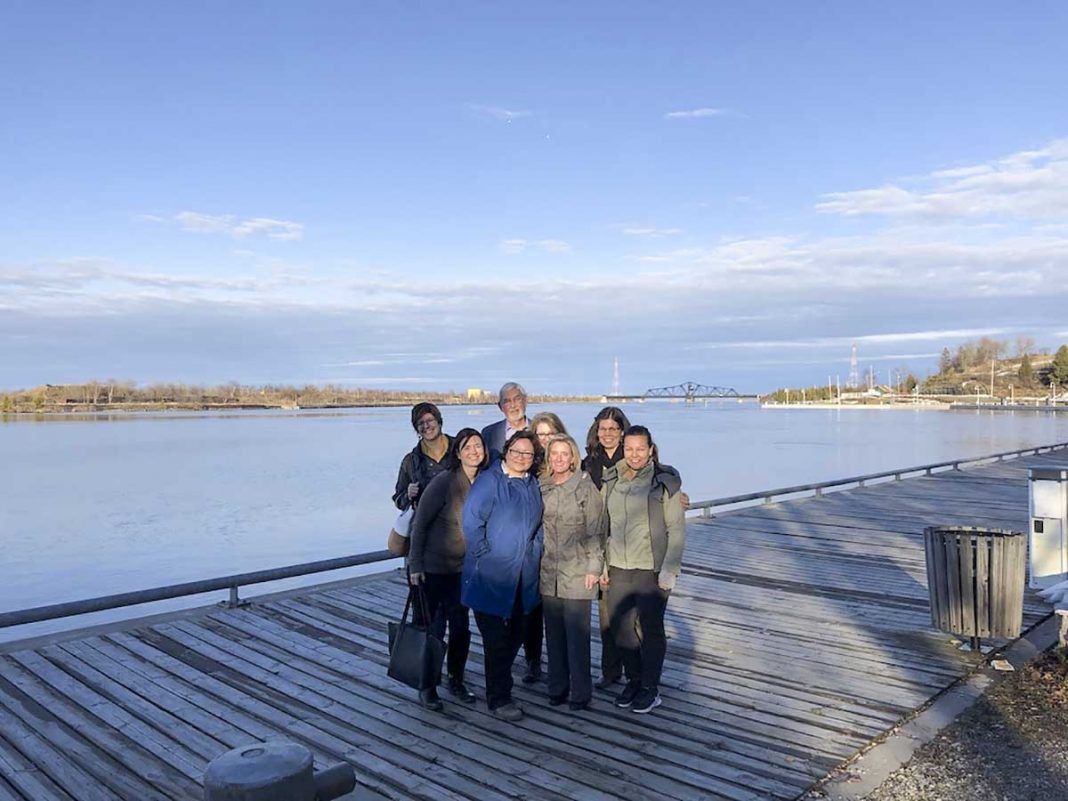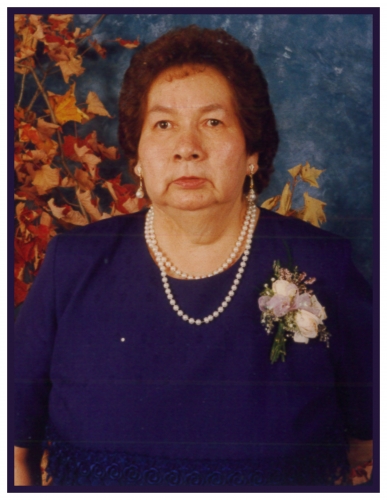EDITOR’S NOTE: The breakthrough Canadian Indigenous Cognitive Assessment (CICA) tool is expected to revolutionize dementia diagnosis and care in aging Canadian Indigenous populations. It was developed here on Manitoulin Island. The Expositor will be exploring more aspects of the tool in future editions, continuing with an overview of the validation process in the next edition of this series. To access the free CICA tool, visit i-CAARE.ca.
MANITOULIN – Creating a brand-new medical diagnostic tool is a large task. Although similar tools can provide helpful reference points during development, each tool’s unique purpose means any advancements must be tested specifically based on the problems it seeks to address.
The Canadian Indigenous Cognitive Assessment (CICA)’s validation process employed the expertise of Naandwechige-Gamig Wikwemikong Health Centre (WHC) registered nurse and community health researcher Karen Pitawanakwat and Laurentian University Canada Research Chair Dr. Jennifer Walker.
Those leads worked in collaboration with community partners such as health centres, medical staff and researchers to determine whether or not the CICA would be an effective tool for Canadian Indigenous populations.
“It was a very difficult process to co-ordinate and they did a fantastic job,” said Dr. Kristen Jacklin, the team leader who began working on the CICA in 2014, who now works as a professor of medical anthropology at the University of Minnesota Medical School Duluth.
Local effort, international connections
Dr. Walker received a grant from Canadian Institutes of Health Research to focus on the validation process. A grant from the same organization funded the first round of developing the CICA, led by Dr. Jacklin.
“One of the things that’s been really incredible is watching how community-driven this process has been, but at the same time very connected internationally to other groups in other communities,” said Dr. Walker, who is Haudenosaunee from Six Nations of the Grand River.
The CICA is an adaptation of an Australian-made, Indigenous-specific cognitive testing tool, and now countries around the world such as New Zealand and Nepal are working on similar tools.
“This work has been really inspiring to me because I’m floating between all of those layers of the project, and I think it’s been a really beautiful, effective relationship,” said Dr. Walker.
Island health providers were also key partners in the research.
Reliability testing
To determine the tool’s effectiveness, researchers first undertook a reliability phase which involved a loved one being tested twice in the same day, but by two different assessors. Those results showed very similar scores between the different testers, meaning the tool could reliably be used to test cognitive function.
A second aspect of reliability testing was checking whether the questions were culturally sensitive and specific enough to be relevant for people undertaking questions. By ensuring the questions were both appropriately worded and effective, the teams could prove the tool was a good fit to enter medical practice.
“We needed to show it could be trusted by clinicians who might question it. That’s what’s so important about sensitivity and specificity reliability testing—it gives clinicians the confidence to use the test the communities want them to use,” said Dr. Walker.
Validating the CICA
The key piece of the validation was comparing the results of the CICA to the outcome of a geriatric assessment.
A full geriatric assessment, a “gold standard” test to determine an older person’s mental abilities overseen by a medical professional, was the baseline required to determine whether the CICA was effective at flagging cognitive decline in aging Anishinabek. The geriatric assessments were led by Dr. Chris Patterson of McMaster University, who has been visiting Manitoulin for 20 years and working with Island First Nations.
Validation took place in the spring of 2018 in Wiikwemkoong, Sheguiandah, Aundeck Omni Kaning and M’Chigeeng First Nations. Some 56 individuals used both the CICA and a geriatric assessment to check the correlation between those test result.
One-third of the loved ones undergoing testing had existing diagnoses of dementia and another third may have complained of having mental problems.
“Our advisory council and home care staff were very instrumental in letting us know who to talk to, and prioritizing the people in the community who we felt would benefit from having a geriatric assessment—it was a real give and take,” said Ms. Pitawanakwat.
Ultimately, the tool was shown to align well with the geriatric assessment and score well on its reliability testing within Anishinabek populations. This is especially significant because the CICA, which is only a 10-minute-long test, is much easier on loved ones than if they were to undergo a full geriatric assessment.
“If people are reluctant to go to a physician as the first step in their dementia journey, they can rely on other supports, other trusted individuals in the community to go through this very first step with them. Once they have their result, then they can have the conversation about getting more medical care as soon as possible,” Dr. Jacklin told The Expositor.
Future iterations of the tool are planned to expand to other First Nations and Indigenous peoples in Canada.
Indigenous data sovereignty
An important tenet of the validation process was Indigenous data sovereignty, the understanding that when data about Indigenous peoples is collected or held, those Indigenous peoples should have the right to own and control the data and tell the stories of those data.
It also expands beyond initial data collection to include the overall direction that research in Indigenous communities takes, both in the development and use of any research breakthroughs.
“As the CICA becomes a reality for communities and is used, we’ve got to make sure the data generated by its use is … not being used to tell stories that the communities are not telling about themselves,” said Dr. Walker.
Much popular discussion of Indigenous peoples tends to focus disproportionally on problems or issues within their populations, rather than the progress made.
“Most community-based research that’s actually driven by the communities wants to show the strengths and paths towards healing and aging well, rather than just always focusing on the problem. While it might be accurate to show that there are problems, we need to ask whether that’s the story the community needs to tell to be able to take the next steps toward healing,” said Dr. Walker.
• • •
With the CICA tool validated and ready for use with Anishinabek, dementia care had already begun to transform in Canadian First Nation populations. The next edition of The Expositor will discuss the researchers’ hopes on the impacts of this revolutionary tool.




